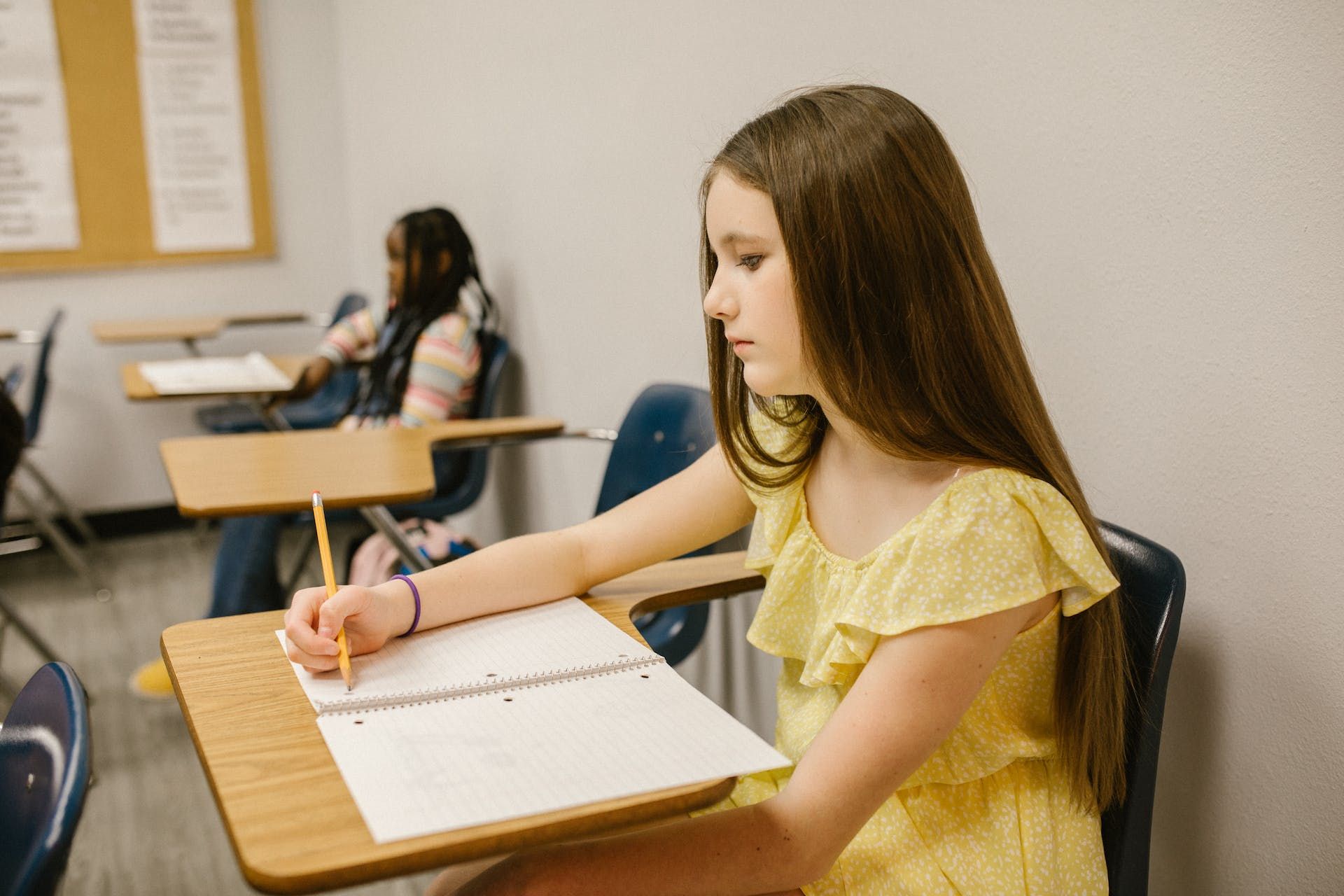
Article November 14, 2023
What to do when bullying hasn’t been dealt with | Empowering Families
The realisation that your child is being bullied at school (or outside of it) can be undeniably heartbreaking. Naturally, as a parent or guardian, your first instinct is to protect your child from any harm that may come their way. So, when bullying persists unchecked, you’re not alone if you feel powerless.
Lucy had only recently started secondary school when she first experienced bullying. It began when she was unexpectedly ostracized by her friends in Year 7, and the bullying soon escalated to social media, where they would send her “horrid messages.” Though Lucy was moved to another part of her school in the hopes of fixing things, the bullying simply followed her there.
Sadly, stories like Lucy’s are all too common. The National Bullying Helpline reports that every day, parents contact them for help with months-long bullying that hasn’t been dealt with.
No child should have to suffer through bullying. If you’ve reported the situation to your child’s school and you’re feeling frustrated or let down by a lack of progress, check out the UK government’s advice and resources for seeking professional help, or keep reading for more strategies and solutions.
Is my child being bullied?
In some cases, it can be hard for both schools and students to work out which incidents actually constitute bullying to begin with. Unfortunately, the line between bullying and teasing can be blurry. A comment that one child laughs off as a harmless joke could be deeply hurtful to another.
Plus, teachers aren’t always around to see the full situation (for example, when bullying occurs in the playground), only adding to the confusion.
The difference between bullying and teasing
If you’re struggling to tell whether your child’s being bullied, or if you need help explaining the upset to their school, there are some key differences between bullying and teasing.
Usually, bullying is done intentionally to hurt your child, and it often happens more than once. There may also be a power imbalance between the bully and the victim (for example, if the bully is more “popular”). Teasing, on the other hand, typically isn’t meant to be malicious and may happen as a one-off or between friends.
As an example, joking about a friend’s missed goal in PE is probably harmless teasing. Making degrading remarks about their body or athletic ability in every PE lesson, on the other hand, can be seen as bullying.
Who gets bullied?
Children of all backgrounds, demographics, and circumstances can be bullied. Even children who are seen as “popular” or “successful” can be targets for bullying. Take our alumnus, Ben Larg, for example — a champion surfing star who was bullied at school before joining us.
However, it’s also important to note that some young people may be at a higher risk for bullying. LGBTQ+ students, for example, or learners with SEND, are often more commonly targeted.
Common signs of bullying
If your child is being bullied, you may also notice the following signs:
- Withdrawing from family and friends
- Losing interest in school, activities, hobbies
- A drop in academic performance
- Anxiety around school or the journey to school
- Trouble sleeping or eating
- Unexplained stomach aches or headaches
- Changes in mood (such as anger, sadness, tearfulness)
- Lost or damaged possessions
If your child is exhibiting any of these signs, explaining them to the school can help give them a better understanding of the situation.
Why isn’t the bullying being dealt with?
Schools have a duty to provide a safe learning environment for all students, so the usual first response to finding out your child is being bullied is to turn to their teachers for help. Schools are bound by anti-bullying policies, and educators generally care deeply about the wellbeing of their students. So, in most cases, bullying is tackled at the first complaint.
Unfortunately, however, this isn’t always the case. If you’re reading this guide, your child’s school has likely fallen short of your expectations. You may feel like they’re not looking into the matter quickly enough, they’re dismissive of your worries, or they haven’t imposed good enough solutions. All the while, both you and your child may be left feeling anxious, frustrated, and worried about future incidents.
There are many reasons why bullying may not be dealt with as well or as quickly as you’d like. One reason is the difficulty in identifying bullying. Delays can also happen because schools need to gather all the surrounding information before making a decision, or because they need to prioritise resources to tackle other incidents.

4 steps you can take if the bullying carries on
No matter the reason, if your child is still being bullied after you’ve made the school aware, you don’t need to feel stuck or hopeless. Here are four steps you can take to advocate for your child, get the process moving, and hopefully come to a resolution.
1. Try other communication methods
In many cases, communication can be the biggest barrier to getting bullying dealt with. Be aware that you may need to communicate with your child’s teacher in multiple ways to get the message heard.
Emails are great because they create a record of your communications. However, since teachers are often very busy, you may also need to schedule an in-person meeting to better get your points across.
Try to go beyond words too, providing evidence if you have any. If your child is being cyberbullied, for example, show screenshots to the teacher. If your child’s possessions are being broken, show them the remains.
Above all else, the key is to also communicate your expectations. Ask your child’s teacher to clearly explain the next steps they’re going to take to tackle the bullying, along with when you can expect an update. Try to write these points (and anything else you discuss) down, as this will help you if you need to escalate the issue.
2. Talk to the headteacher
If you’re not making much headway with your child’s teacher, you can also request a meeting with the school’s headteacher or the senior staff member who oversees behaviour and conduct.
Just like talking with your child’s teacher, the best way to get swift resolution is to explain your concerns as clearly as possible and provide any supporting evidence you have. Again, make sure you and the headteacher are on the same page about how the school plans on investigating the bullying and how long this will take, and make sure to take notes in your meetings.
3. Talk to the governors
In some cases, you may need to go beyond the school’s staff and escalate your bullying concerns to a higher authority.
If you’re based in the UK, a good next step is to contact the school governors. The administrative team at your child’s school should be able to pass on their contact details.
When you get in touch with the governors, you’ll want to explain the bullying situation in full and let them know about your attempts to resolve the issue. This is where any communication records from your meetings with the teacher and headteacher will come in handy.
Governors often have the power to expedite a bullying investigation, so this can be a big help in finally getting the problem solved.
4. Complain to the LEA
Finally, if the school and its bodies still fail to take appropriate action, you have the right to make an official complaint to your Local Education Authority (LEA) if you’re in the UK.
Part of the LEA’s role is to foster good relationships between families and schools. They’ll be able to make an objective investigation into the issues you’re having and help facilitate the best solution for everyone. They’ll be able to prompt the school to comply with their anti-bullying policies if they’re not doing so already, ensuring the school meets their obligation to keep your child safe.
If your child goes to a free school, an academy, or a private school, note that you won’t be able to make a complaint to the LEA. Instead, check the UK government website for more help or take a look at the charity Family Lives’ recommendations for higher authorities.
Considering alternative schooling
In most cases, escalating your child’s case through these channels will eventually result in the action you need to get your child feeling happy and confident in school again. Of course, the process can still be lengthy, and you’re not alone if you don’t want to wait any longer.
If your child is experiencing anxiety as a result of the bullying, the charity Contact recommends getting in touch with your GP for mental health help.
Whether your child has become anxious, is struggling to focus in class, or is generally feeling upset and detached, you may be considering an alternative schooling option. Another local school may be a good choice, and some families turn to temporary or full-time homeschooling instead. Others, meanwhile, make the move to online schools like King’s InterHigh.
Online schooling for children who’ve been bullied
At King’s InterHigh, we provide a safe, calm, and nurturing online learning environment where children can thrive without the worries of bullying. After struggling through bullying in Year 7, Lucy says that “King’s InterHigh is the best thing that has ever happened to me.”
“All the kids are amazing, kind and friendly. The teachers are so loving and kind, the lessons are stress-free. They bought all my confidence back.”
King’s InterHigh student
For children who have dealt with bullying, there can be numerous benefits to learning online, including:
- Flexibility to learn at their pace and catch up with any schooling they may have missed while they were being bullied;
- Small class sizes with lots of attention from teachers;
- Tight-knit community where students feel welcomed from the start of their induction;
- Social activities like clubs and events where your child can bond with others who share their interests;
- Accommodations for students who have developed anxiety, including ways to communicate in class without speaking;
- Wellbeing support throughout their time with us, from workshops to tutor sessions.

We also have a comprehensive anti-bullying policy, which outlines our exhaustive process for preventing, recording, reporting, and responding to any incidents of bullying. Our aim is to create an inclusive learning environment where every student feels welcomed, so we work hard to make sure your child feels protected and supported.
If your child is being bullied and you’re considering online school, book a discovery call with us to discuss how King’s InterHigh can support your family.




















